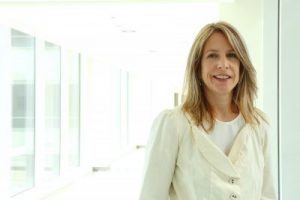 What brought you to UNC Medical Center? I came back to UNC in 2003 for an Infectious Diseases (ID) fellowship. I was interested in addressing the HIV epidemic in resource poor areas after spending time in several African settings. At that time, UNC was one of a handful of academic centers with faculty and infrastructure on the ground doing that. I was drawn to the results-driven research of UNC ID faculty and the open-minded approach about most things, including my goals.
What brought you to UNC Medical Center? I came back to UNC in 2003 for an Infectious Diseases (ID) fellowship. I was interested in addressing the HIV epidemic in resource poor areas after spending time in several African settings. At that time, UNC was one of a handful of academic centers with faculty and infrastructure on the ground doing that. I was drawn to the results-driven research of UNC ID faculty and the open-minded approach about most things, including my goals.
Where are you from? I grew up about one hour away in Greensboro, NC. I lived outside of NC, and the United States, before coming back to NC for medical school at UNC. I completed residency at Vanderbilt University and did a stint with Medicins Sans Frontieres (MSF) before returning to UNC for fellowship, and stayed on since.
Did you always want to be a doctor? I was interested in medicine from an early age as my dad was a physician, and I loved learning about the human body and medicine as a kid. But his real gift to me was passing on a desire to love what I did, as he did. I detoured from a straight path to medicine to make sure it was the right path for me, and it was.
How did you choose your specialty? I love ID for so many reasons. I find the interaction between two living things fascinating. I love having to think about the entire human body and how that interaction unfolds. I appreciate how so many other things in the human condition affect what infections occur and to whom, shaped by geography, economics, politics, gender and much more. In the earIy 2000s, I experienced the reality of HIV in Africa, and that was it for me.
What do you find most rewarding about your work? The big and small impact you can have on individual patients is easily the best part. Sometimes this is being the person who listens. Sometimes it’s making a patient laugh, and providing a safe place to talk about HIV when no one in their life outside of clinic knows. In research, there is real satisfaction in changing how we do things, such as making treatment or access to it better.
What are some of the new developments in your field of specialty? There are many including the use of long-acting antiretroviral drugs and broadly neutralizing antibodies for both HIV treatment and prevention. There are many strategies being explored to move us closer to a HIV cure, including use of antibodies targeting HIV, HIV-specific T cell therapy and vaccines, all of which we are exploring at UNC.
Is there a particular achievement (professional or personal) that has been most gratifying to you? Being a part of starting an ART program in Africa with MSF was amazing on an individual patient level and for the bigger picture of showing that it could be done. On a personal level, my two kids make everything in life better.
What is the best advice you’ve ever received? It may not be the best, but I try to follow the advice I give myself, which most frequently involves not sweating the small stuff and following my instincts.
If you weren’t a physician, what would you like to be doing? I would probably work with an NGO addressing ID-related public health issues.
What hobbies do you enjoy? In a former life, I enjoyed painting/drawing and photography. These days, it’s mostly cooking, gardening and road cycling when I can.
Do you have a favorite quote or life motto? I don’t really have a favorite, but there are two phrases that I find myself repeating to my kids lately. They include: “never give up” and “when given the choice between being right or being kind, choose kind.”
What was the last book you read? “Wonder” by R. J. Palcacio. I started it with my son, and finished it up on my own because I loved it.
Find Dr. Gay’s academic profile here.